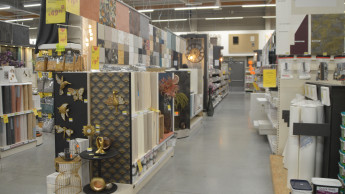Why is it important to have such an association as Edra/Ghin for this industry?
Thierry Garnier: I’ve been in the French retail association and even Chinese retail associations. I was actually the vice president of the Chinese retail association - and it was a privilege to be the first non-Chinese to be elected as a vice president. I always like to work with or support these associations because it’s a great way to share best practices and issues in a way that complies with competition law. First, we should always be extremely careful and follow all the regulations that we have in all our countries, including and especially competition laws. However, when you look at sustainability – and at the Global DIY-Summit we discussed the question of Scope 3 – there are many issues to take into account. We have common problems and we could try to work together or share good practices for the benefit of the industry and, at the same time, of the planet. I believe it’s a great way to share good practices – as well as between retailers and suppliers.
Would you agree that in these times it’s more important than ever to have such a platform to discuss common issues?
I agree because I think that the two largest transitions are on digitisation and climate. Of course, we have other challenges to tackle, like the consequences of the war in Ukraine. However, in the longer term, the big transitions are digitisation and climate. They are fast approaching and challenging our industries. So, more than ever, I think we need to work together on common themes.
Talking about digitisation, in what way will physical stores be relevant in the future?
Again, coming from China, if you want to understand the future of stores you have to look at different places around the world and not only Europe. I’m not sure if Europe is on the front line. You have to look at the US and you have to look at Asia, especially at China, because China is a world where we have over 50 per cent of digital penetration. What is the role of the store in a world where over 50 per cent of sales are made online? For the cities in China, it’s largely above 50 per cent. When e-commerce is largely done within one hour of home delivery, why do you need a store?
I think you first need a store for the experience which could be a pleasure. Touching material, enjoying the design, or buying plants in the garden centre – that’s pleasure. A special kind of experience is also colours and material. You can’t do that online. Then it’s…

 Menü
Menü















 Newsletter
Newsletter